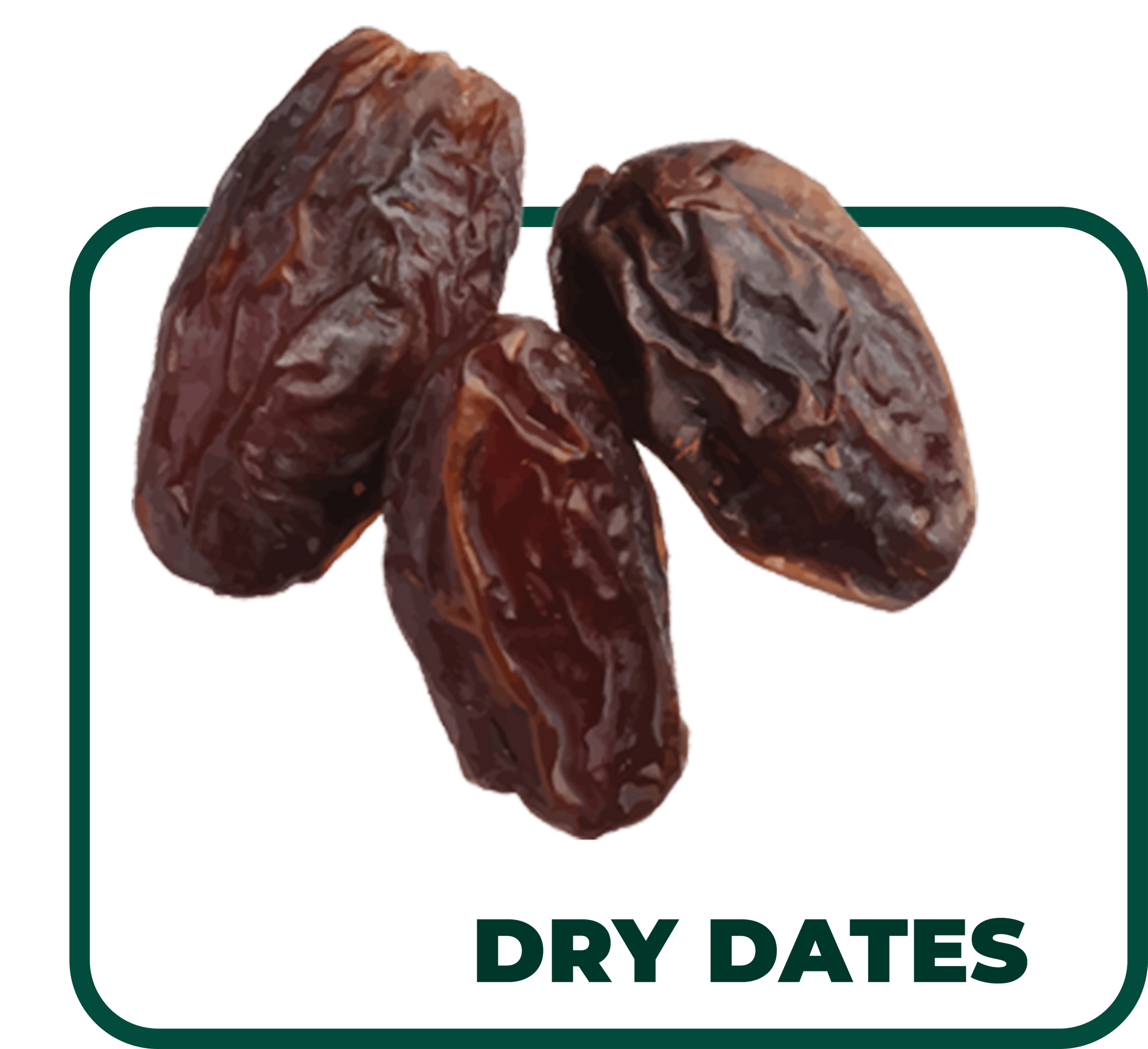
Dry Dates
Dry dates are the preserved form of fresh dates, achieved through a drying process that concentrates their natural sweetness and flavor. They have a rich, caramel-like taste with a chewy texture. The drying process enhances the dates’ shelf life, making them a convenient and long-lasting snack. Dry dates come in various sizes and colors, including dark brown and golden, depending on the variety and drying method.

Dried dates are rich in vital nutrients such as dietary fiber, iron, magnesium, and potassium. They are an excellent source of energy due to their high natural sugar content, primarily fructose and glucose. Dry dates also contain antioxidants, such as flavonoids and polyphenols, which help protect the body from oxidative stress and inflammation. They provide important vitamins, such as B vitamins, which support energy metabolism and overall health.
Eating dry dates can boost energy levels, support digestive health, and contribute to overall well-being. The dietary fiber supports digestion and helps regulate bowel movements, reducing the risk of constipation. Additionally, the potassium and magnesium in guavas contribute to heart health and help maintain stable blood pressure levels. The antioxidants in dry dates help reduce inflammation and combat oxidative damage, potentially lowering the risk of chronic diseases.
Dates are typically harvested from late summer to early autumn. To produce dry dates, fresh dates are harvested when they are fully ripe and then dried, either naturally in the sun or using mechanical dryers. The drying process can take from several days to weeks, depending on the method applied. Once dried, dates are stored in a cool, dry place to maintain their quality and extend shelf life.
Dry dates offer a delicious and nutritious option for snacking and cooking, providing a rich source of energy and essential nutrients. Their long shelf life and versatile uses make them a valuable addition to any pantry.
